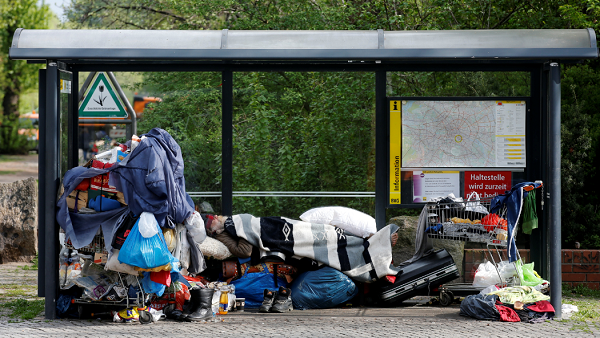Marijuana In Colorado: Homelessness Will Be Fought With $13M From Tax Revenue, Governor Says

Gov. John Hickenlooper of Colorado plans to make good on his promise to ease homelessness throughout the state with a new plan dedicating millions of marijuana tax revenue towards projects that will provide housing specifically for those suffering from chronic and episodic homelessness, the Denver Post reported on Sunday. Hickenlooper announced his plan, which will use $12.3 million to develop housing units for those in need and another $6 million for low-income housing, in his budget request for the 2017-18 fiscal year.
The Democrat has been advocating for homeless relief since he first ran for mayor of Denver back in 2003. His latest proposal to offset homelessness in Colorado comes not long after the U.S. Department of Housing and Urban Development reported a 13 percent increase in homelessness in Colorado – the third largest increase in total homelessness throughout the country following California and Washington.
Colorado’s legal marijuana program has generated more than $134 million in tax revenue within the first nine months of 2016, according to reports. The money has been used to fund health care, substance abuse prevention services, treatment programs and law enforcement. In September, state officials announced at least $40 million in marijuana tax revenue would be allocated to anti-bullying programs in 50 schools.
As far as funds for affordable housing and homelessness, Hickenlooper proposed spending $12.3 million to build 1,200 new permanent housing units for homeless people suffering from chronic homelessness as well as an additional 300 units for people facing periodic homelessness in the first five years. There will be $4 million used to acquire or build 354 new housing units geared for behavioral health services while $2 million will be used to add 250 affordable housing units for seniors and people affected by rising prices caused by gentrification.
The governor’s budget director, Henry Sobanet, told the Post that Hickenlooper’s new “aggressive” plan is just another example of the many ways tax dollars generated from the marijuana industry can effectively impact Colorado.
“Taking what used to be an illegal activity, now that’s it’s legal and taxable, (and) using it to address another social issue was an opportunity that we felt important to take advantage of — and one that would make some sense to the public,” he said.
In Aurora, officials have already proposed to use $4.5 million in marijuana tax revenue to help ease homelessness in the city. In May, city officials said they would allocate money to help aid homelessness programs that are already addressing the needs of the homeless community like the Colfax Community Network, which provides outreach, support and food services to more than 8,000 homeless people living in Aurora.
© Copyright IBTimes 2025. All rights reserved.






















